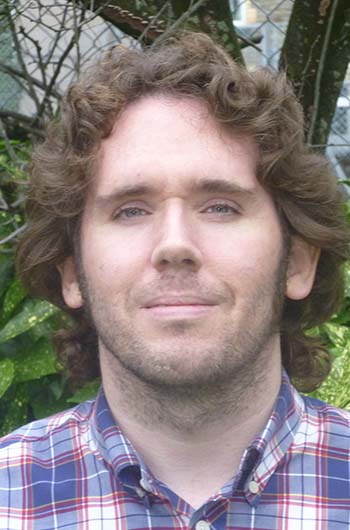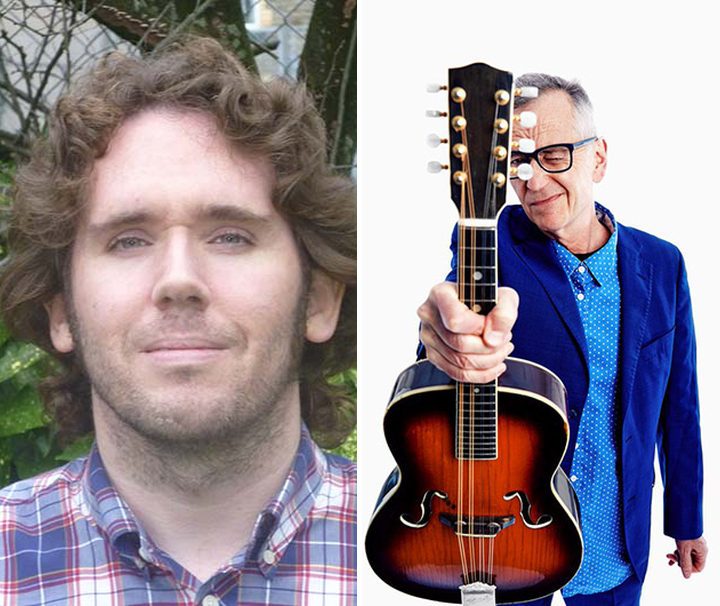‘Heard melodies are sweet, but those unheard are sweeter’ – Keats
Poets are like singers with their own backing bands, carrying their music in their forms and phrases, and the sound of a line can often help the writer make much more helpful choices than surface meaning.
In this course we’ll aim to release the power that music can give our poems, considering some traditional and innovative forms, as well as just thinking about what musical effects can give to individual lines and phrases. If techniques like rhythm and rhyme can help propel a poem and generate things we may not have written without them, this is equally true of the music of the streets, and we’ll consider too, how to enrich our writing with vernacular voices.
Then there’s the music of conversation, the way it’s possible to fill a poem with more than one voice, set it dancing to the rhythm of question and answer. And there’s music, too, as subject, how it’s possible to draw on the lives of the great musicians of history or pop culture, or write about our own experiences of music: the way that hearing a few bars of a song may witch us to a certain memory, the way the sound of a violin connects us to a particular person.
If you’ve ever wanted to write a poem in praise of the specific sound of your mother’s voice, or if you’ve fallen in love with a line of a poem because of its sound, or you’d just like to understand more about what music can do for your writing, this week in Garsdale will set your poems singing and dancing, waltzing and swinging.
 |
Tutor: Jonathan Edwards – Poet Jonathan Edwards’s first collection of poems, My Family and Other Superheroes (Seren, 2014), received the Costa Poetry Award and the Wales Book of the Year People’s Choice Award. It was shortlisted for the Fenton Aldeburgh First Collection Prize. His second collection, Gen (Seren, 2018), also received the Wales Book of the Year People’s Choice Award, and his poem about Newport Bridge was shortlisted for the Forward Prize for Best Single Poem 2019. He received the Troubadour Prize in 2022. Jonathan has been poet-in-residence at Gladstone’s Library and at the Dylan Thomas Boathouse, Laugharne, a judge for the National Poetry Competition, the Wales Book of the Year and the Foyle Young Poets Award, and a Literature Wales mentor of emerging writers. He lives in Crosskeys, South Wales, and is an Advisory Fellow for the Royal Literary Fund. |
|||||
 |
Thursday Evening Guest Reader: John Hegley – poet John Hegley was born in North London to whose environs he has returned, after education in Luton, Bristol and Bradford, Yorkshire. He has for many years been involved in the creation of songs, poems, books, radio programmes, festival performances and cardboard animals. A former BBC on-line poet and poet in residence at Keats House, he was one of the guest performers at a women’s prison, in Medellin, Columbia, has been honoured with a doctorate from the University of Bedfordshire, was nominated for the Edinburgh Fringe Perrier Award and described in The Independent as ‘awesomely mundane’. Photo: Suzi Corker |
|||||
| PRICES |
Fee includes all day and evening tutored workshop sessions, individual tutorials, tutor and guest readings, accommodation, inc. sheets and towels and all meals (not including alcohol). Single – En-suite room £1,150 |
|||||
| TO BOOK |
£200 deposit payable on booking by bank transfer, PayPal or cheque, to secure place. Balance due six weeks before the start of the course. Please see Terms and Conditions. |
|||||
| STRUCTURE OF THE WEEK | See Structure of the Week (tab above) | |||||
| WHAT TO BRING |
|
|||||
| START TIME |
Please arrive between 3:00pm and 4:00pm on Monday 23rd March 2026 Tea, cake and housekeeping information 4.30pm Introductory Workshop 5.30 – 6.30pm |
|||||
| END TIME |
After breakfast, 10:00am on Saturday 28th March 2026 |
|||||
| LOCATION | The Garsdale Retreat, Clough View, Garsdale Head, Sedbergh, Cumbria LA10 5PW Nearest railway station: Garsdale, on the Leeds – Carlisle line. For directions, see Find Us section on the Contact page. |
All courses start on Monday afternoon.
3.00 – 4.00pm: Arrival time
4.30pm: Housekeeping/Course information with tea and cake
5.30 – 6.30pm: Introductory workshop
7.00pm: Dinner
All courses end after breakfast on Saturday (10.00am).
Course Structure Tuesday – Friday
8.00 – 9.00am: Breakfast
9.30 – 11.00am: First workshop – Participants explore particular aspects of poetry and take part in writing exercises to further their understanding and expertise. All participants have opportunities to share their work with the tutor and fellow writers in a safe, supportive and nurturing environment in which individual work is respected and confidence developed.
11.00 – 11.30am: Coffee break
11.30am – 1.00pm: Second workshop
1.00pm Lunch. After lunch, participants are free to do whatever they like, such as: relax, go for walks, read or work on individual writing projects.
4.30pm: Tea and cake
5.30 – 6.30pm: Third workshop
7.00pm: Dinner
All participants on a course have one individual tutorial of 30 minutes with the tutor in the course of the week. These will take place in the afternoons.
Each evening, at 8.30pm – c.9.30pm, there is an after-dinner event:
Tuesday – the tutor will read from their work.
Wednesday – poetry/music performance from Hamish and Rebecca.
Thursday – reading from a guest writer.
Friday – a shared reading of the ‘work-in-progress’ anthology produced during the week.


